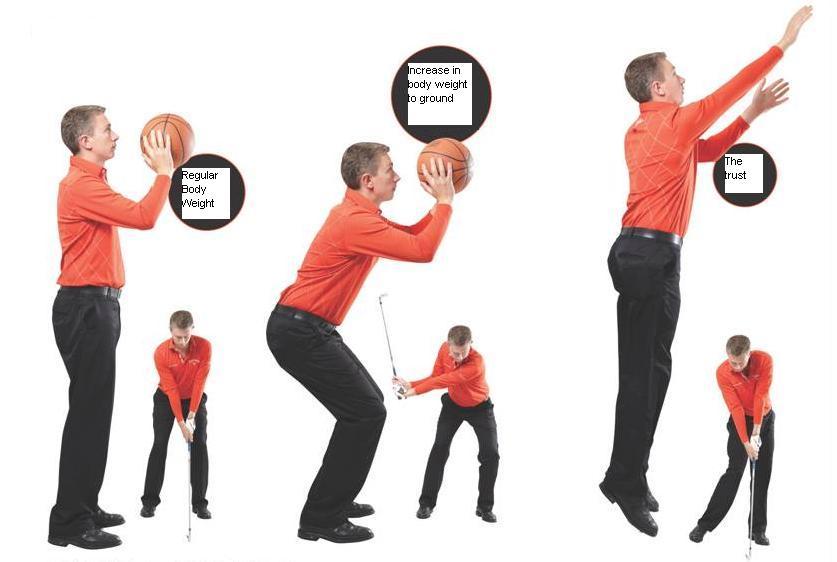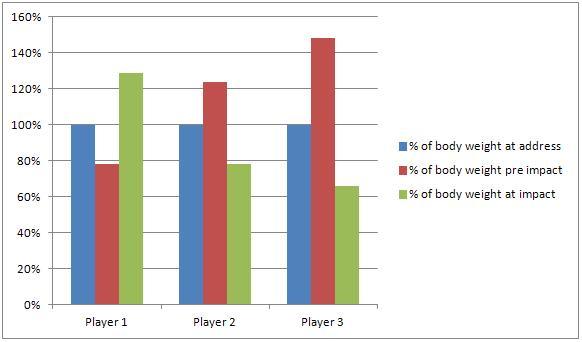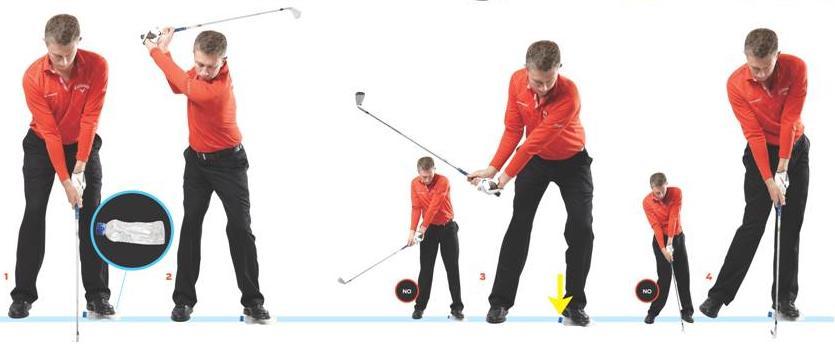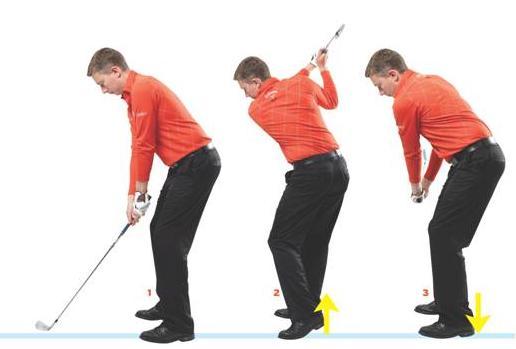In recent years, technology which was originally researched and developed for the medical field has moved into golf research and coaching. This technology is providing a new way of looking at the swing and seeing elements that are invisible to the eye. Technology which was first designed to help the medical field analyze the foot, the shape of the foot and walking patterns, is for me one of the most important technology’s that has moved into the golf world, and it is a technology I use everyday in my teaching with a force Plate system from Science & Motion “Sam BalanceLab”. There are many elements this system can help us understand that the eye cannot see, but the aspect I will focus in this article is Ground Force. To explain this, I am going to start with another sport “basketball”.
The first step for a basket ball player is to position his or her’s body ready for the shot. In this position, the player’s body weight to the ground will be exactly the same as their body weight, let’s say in this case 80 kg’s! The second step is using the ground and their body weight to create stored energy. It is a quick movement where they flex their knees and push their body weight into the ground. If they were standing on a scale, their body weight to ground would increase to that of their static weight. With a powerful basketball player their body weight to ground could increase from 80kgs to over 100kgs, creating a lot of stored energy. In the final step, the player releases this energy with an upward thrust, releasing the ball at the end of the thrust. At the moment they release the ball, they have no body weight on the ground. The more the player has increased their body weight in the 2nd step the more power they can create and the further they can throw the ball. It is this movement which is described as “Ground Force” or “Using the Ground”. What the force plate technology has allowed us to see is that the movement in golf is very similar to this.

Research on this subject shows clearly that there is a direct relationship between "Ground Force" and distance. Below is a sample from this research:

The bar chart shows 3 players in 3 positions in the swing, address, pre impact (club parallel to the ground), impact and the percentage of their body weight on the ground.

The important aspect to look at in the results above is the percentage of body weight pre impact and how the longest hitter of the 3 players has a body weight percentage of over 140% in this position. This energy is then released in the same way as in basketball, with a quick upward thrust, reducing body weight to just over 60% at impact, transferring a lot of energy into the club as speed. Take a look at the long driving tournaments and notice how those guys are up on their toes at impact.
Creating Ground Force!
My favorite way to encourage players to develop ground force is using images. One of the best is to think that you are standing on a sheet of ice at address with the ice being just strong enough to support your body weight. Your body weight should not increase in the backswing, so at the top of the backswing the ice will still support you. It is the transition which is the key move to create “Ground Force”. Your lower body should move left, placing more weight on your left foot, but also pushing down into the ground increasing your body weight and breaking the ice! If done correctly, your legs will have taken a squat look.
Water Bottle Drill
Hopefully the image below will help you, but if you still struggle to get a “feel” for ground force, try this drill.
1) Place an empty water bottle under the ball of your left foot. I suggest you remove a little air first by crushing it slightly and then tightening the lid. This way your foot is not too high off the ground.
2) Make your backswing as normal, not placing anymore weight on the bottle.
3) In the key move, push your body weight into the bottle crushing it as much as possible. This will increase your body weight, creating “Ground Force”. It will also help you move your weight to your left foot in the downswing, helping the quality of impact.
You can do the same exercise using a dog’s toy. One of the ones that when you squeeze it, it makes a noise. Place it under your left foot and make as much noise as possible in the transition!

Stamp Drill
Another simple drill to help you create ground force is the stamp drill. Follow these steps:
1) Take your address as normal.
2) In the backswing, as you transfer your weight to the right foot, roll your left heel off the ground slightly so the heel is not touching the ground.
3) Now, start the downswing with a forceful stamp of your left heel into the ground.
Again, this will help you transfer your body weight to the left side and create some ground force!

Check out these videos to understand Ground Force and to learn new drills.

